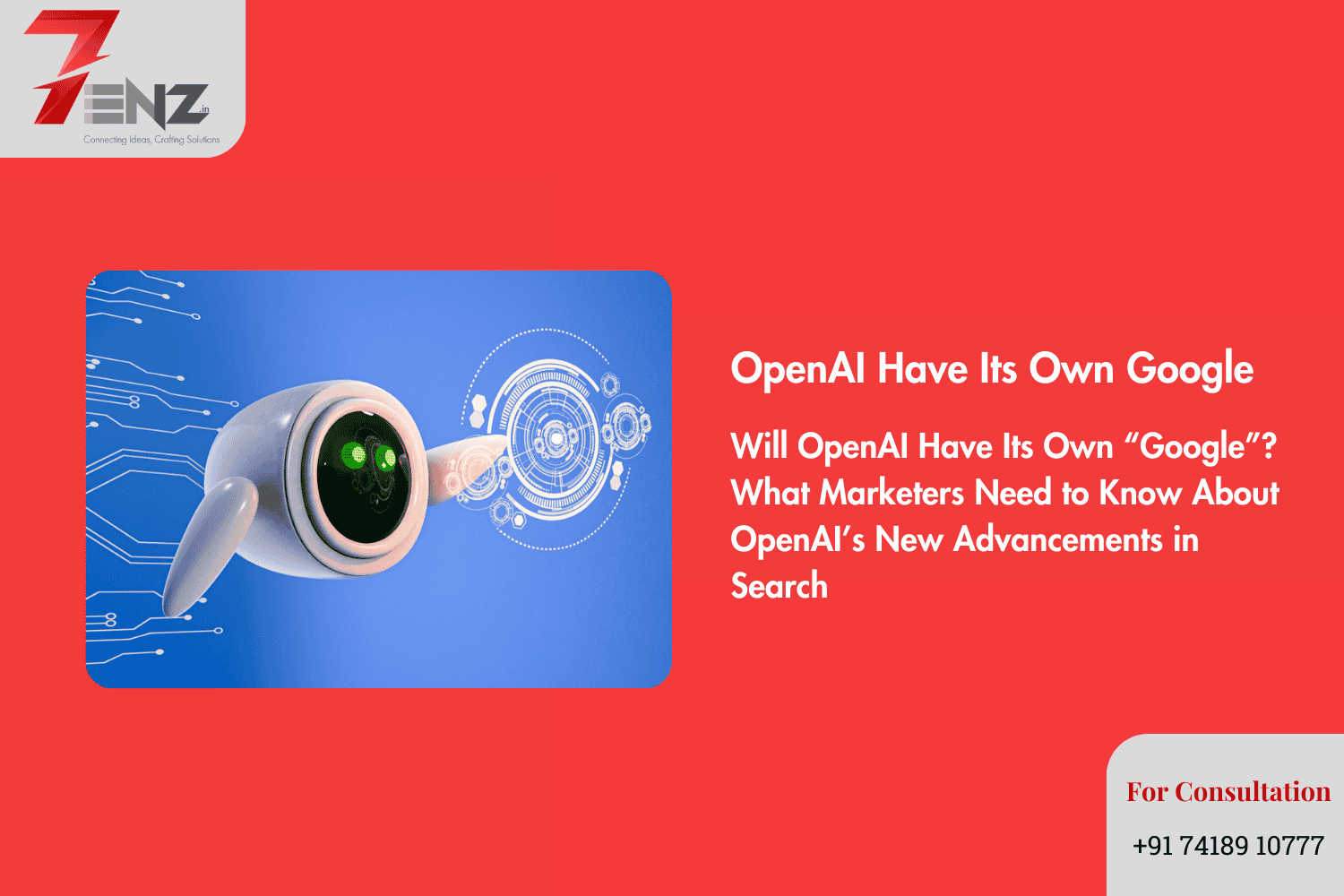
Will Open AI Have Its Own “Google”? What Marketers Need to Know About OpenAI’s New Advancements in Search
For the past few weeks, the marketing world has been buzzing with rumors about OpenAI potentially launching a competitor to Google Search. The whispers have sparked questions like:
- “Is this the end of Google’s dominance?”
- “Does SEO still matter?”
- “Can OpenAI even compete with Google?”
While the rumored announcement of an OpenAI search engine hasn’t happened, that doesn’t mean OpenAI’s search advancements are stagnant. There’s still a lot to unpack about what’s coming and how it might impact digital marketing strategies.
An Ex-Googler Joins Open AI as Vice President
Recently, OpenAI made a notable hire—Shivakumar Venkataraman, an ex-Googler with deep experience in search and advertising, is now OpenAI’s Vice President. Venkataraman held major roles at Google, including overseeing search advertising, Google Labs, and the blockchain division. His addition to OpenAI has fueled speculation that the company could be eyeing search-related innovations.
While some Alphabet (Google’s parent company) investors might be uneasy, Google’s entrenched dominance won’t be easy to unseat. Google holds over 90% of the search engine market share, with its next closest competitor, Bing, holding just 3.64%. Even with Venkataraman onboard, dethroning Google is a monumental task.
Will Open AI Build Its Own “Google”?
According to Sam Altman, OpenAI’s CEO, the company isn’t looking to create a Google clone. Instead, Altman is more interested in providing users with entirely new ways to access information. He believes the world doesn’t need another Google. However, integrating a conversational AI like ChatGPT with search functionality? That’s something “cooler,” according to Altman.
Unlike Google’s ad-driven model, Altman has expressed disdain for search engines that prioritize advertisers’ interests. OpenAI’s ChatGPT, in contrast, is designed to avoid turning users into the product, which raises intriguing possibilities for how search and content discovery might evolve.
What Are OpenAI’s “Cooler” Plans?
OpenAI has been busy building new capabilities for ChatGPT, especially with its recent partnerships and technological advancements:
1. Real-time Data Integration
OpenAI is partnering with publishers like Dotdash Meredith, Le Monde, and Prisa Media to bring real-time news and data to ChatGPT. This means ChatGPT won’t just rely on static data but will be able to provide users with up-to-date information in an interactive, conversational format.
2. ChatGPT-4o (Omni)
The newest version of ChatGPT, dubbed ChatGPT-4o, promises faster responses, voice conversations, and the ability to process images and documents. OpenAI also introduced a feature called “memory,” allowing the AI to remember user details for a more personalized experience in future interactions.
3. Upcoming Features
Looking ahead, OpenAI plans to enable real-time video conversations and even the ability to predict users’ emotions. This is part of a broader effort to make ChatGPT more interactive and intuitive.
Is It the End of Search Engines?
No, the end of search engines isn’t likely any time soon. While AI tools like ChatGPT are incredibly advanced, there’s still a strong demand for human-generated content and hybrid AI-human solutions. Traditional search engines offer a balance between algorithmic efficiency and human editorial judgment that many users still trust.
In fact, many people have opted out of using Google’s AI-driven search features, preferring the familiar, reliable results of traditional search. AI can supplement search engines, but it’s unlikely to fully replace them.
OpenAI’s Approach to Safety: A Cause for Concern?
One area of uncertainty is OpenAI’s approach to AI safety. Recently, Jan Leike, a leading researcher on OpenAI’s Superalignment team, resigned, citing concerns over OpenAI’s direction on Artificial General Intelligence (AGI). Leike’s departure, alongside other key researchers, has raised red flags about whether OpenAI is adequately addressing the potential risks of AGI.
Leike’s public statements about the inherent dangers of building machines smarter than humans underscore the gravity of the challenges OpenAI faces in ensuring that its AI developments are both safe and beneficial.
What Marketers Need to Know
- Google Isn’t Going Anywhere: Despite OpenAI’s advancements, Google’s dominance in search remains solid. Keep optimizing for Google, but be prepared to embrace new AI tools as they evolve.
- ChatGPT-4o Is a Game-Changer: With new capabilities like voice interactions and real-time data, OpenAI is making strides that could revolutionize how people access information.
- Safety Concerns Are Real: Marketers should keep a close eye on how OpenAI addresses ethical and safety concerns, as these issues could impact the broader adoption of AI technologies.
In the ever-evolving landscape of AI and search, it’s crucial to stay informed and adaptable. OpenAI’s advancements will likely influence the way marketers approach content, but traditional search engines will continue to play a key role for the foreseeable future. At 7enz Digital and IT Solution, we leverage the power of AI to grow your business, helping you stay ahead in a rapidly changing digital world.



